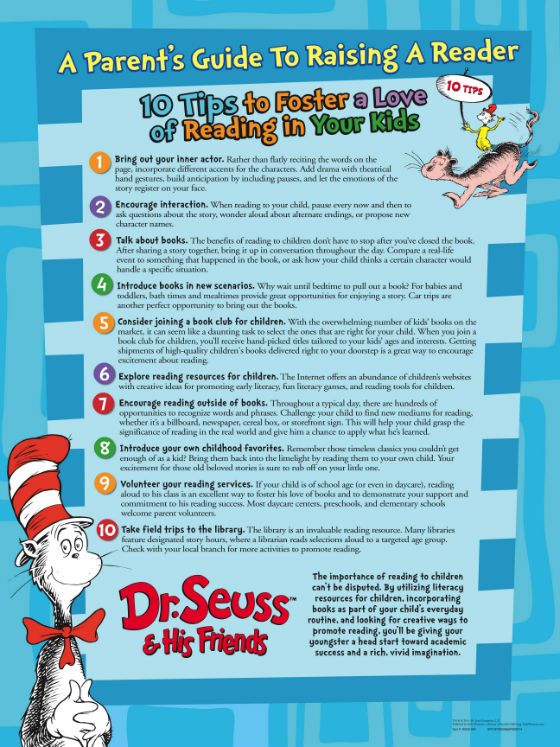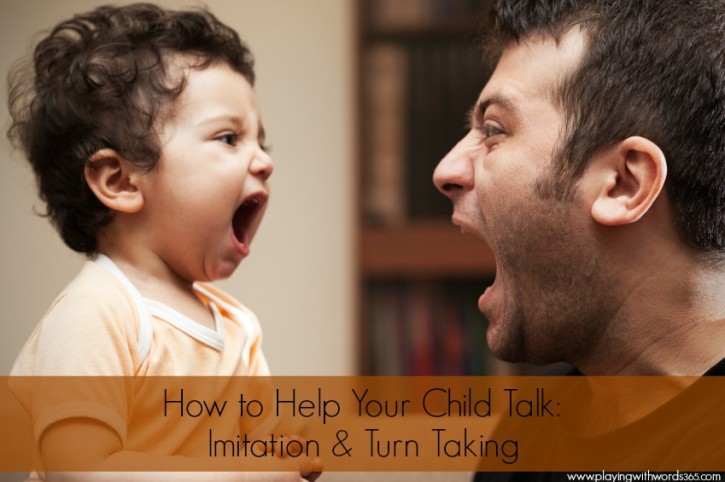How to raise your child right
7 Tips On How To Raise Successful Kids According To Science
We all want our children to succeed. Success can mean different things to different people. In general, it refers to realizing success and getting positive results. The success of a person depends on many factors. Yet, research suggests that successful people’s early childhoods share several common characteristics.
How to Raise Successful Kids
Following decades of scientific research, here is a list of seven things every parent can do to create favorable conditions for their children to succeed in life. This list isn’t exhaustive, but it’s a good starting point for parents who wish to raise successful children, and to become the best parents they can be.
1. Be A Warm, Responsive And Accepting Parent
In 1938, Harvard University conducted a special study to find the secret to raising successful people1.
In the Harvard Grant Study, the first study of its kind, 268 male Harvard students, including John F. Kennedy, were tracked over the next seventy years. Their physical and emotional health were recorded, and their successes, or the lack of, were analyzed2.
Researchers arrived at one clear conclusion:
Relationship is the secret to a happy and successful life. Having a childhood in which one feels accepted and nurtured is one of the best predictors of adult success, well-being and life satisfaction.
This outcome was hardly surprising.
Bowlby & Ainsworth formulated the Attachment Theory in the 1950s, stating that a child who receives warm and nurturing care from a caregiver can develop a secure attachment. A child with a secure attachment is much more likely to have positive development and outcomes.
In addition, human brains are highly experience-dependent3. The brain’s architecture is shaped by life experiences and interactions4. An experience with a warm and responsive parent sets the foundation for future mental health.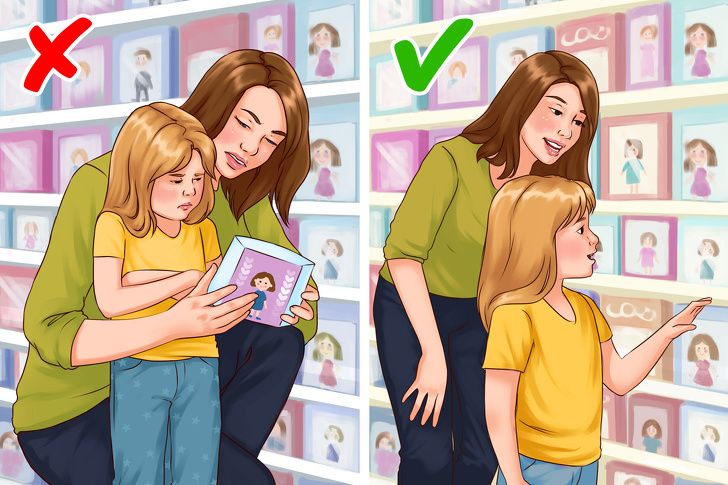 Memories of a happy childhood are a lifelong source of strength.
Memories of a happy childhood are a lifelong source of strength.
Therefore, the best way to raise successful kids is to become a warm, responsive, and accepting parent, and cultivate a close parent-child relationship and family.
2. Master and Teach Emotional Regulation
Being able to regulate one’s emotions is crucial in achieving success and happiness in this world5,6.
Emotional regulation is not a skill we’re born with. It is crucial for us to teach our children how to control their emotions.
However, teaching emotion regulation is not simply giving kids exercises or games to play. Children learn to self-regulate primarily from watching the parents and seeing how they regulate themselves7. If we are upset and yell at our kids every time they misbehave, we cannot expect our kids to be able to stay calm when they get upset.
Many of us were brought up being reprimanded or yelled at when we misbehaved. Therefore, emotional regulation is probably not something you have mastered either. So to help your child succeed in life, first and foremost, master self-regulation yourself and become a good role model for them. Then your child will learn how to do this.
Therefore, emotional regulation is probably not something you have mastered either. So to help your child succeed in life, first and foremost, master self-regulation yourself and become a good role model for them. Then your child will learn how to do this.
Also see: Asynchronous Development Of A Gifted Child And Their Unique Needs
3. Let Them Practice Decision Making
As parents, we want to protect our children, but controlling or helicopter parenting can hinder rather than enhance a child’s development. Making sound decisions requires practice, which can only come from experiences.
Give children choices over non-safety and health-related things so they can start learning how to choose. Instead of forcing them to follow your advice, guide them. However, if they still want to do it their way, let them suffer the natural consequences. Experience is the most efficient way to learn to make good decisions. Autonomy also allows a child to gain self-trust and self-esteem.
A person cannot succeed no matter how well they’re equipped if they don’t want to succeed. A person needs to be motivated to achieve greatness in what they do. Besides learning to make good choices, freedom of choice is also a crucial motivator, especially with school work.
If kids are not allowed to make their own decisions, they will lose motivation. A child’s ability to self-motivate to learn and achieve relies on having the autonomy to choose.
4. Challenge Them Just Enough
Children are motivated to strive toward goals they can achieve. It takes effort to sustain motivation, but success must be possible.
A task becomes uninteresting to the child when it is too easy, but also when it is too challenging to accomplish. Offer kids challenges within their current capabilities and provide them with prompt feedback so they can keep improving their performance.
In case school work seems too easy, you can help them find extra learning materials. If school work is too challenging for your child’s current level, work with the school or seek a tutor to work on this.
If school work is too challenging for your child’s current level, work with the school or seek a tutor to work on this.
5. Stop Using Reward And Punishment. Motivate Them Through Values.
Not all motivations are created equal. Rewards and punishment only create extrinsic motivation, which is not a good long-term solution.
We may be able to force kids to do school work when they’re young using rewards and punishment. But if they don’t like learning or school, they will quit eventually, or do poorly in it.
To help kids develop intrinsic motivation, share your values in why learning is important. Going to schools and learning shouldn’t be just about getting A’s. It’s about acquiring knowledge and growing as a person.
Only if kids enjoy learning will they be intrinsically motivated to succeed and enjoy doing it. Thus, strive to motivate your child to learn, and to enjoy learning.
6. Kind, Firm and Respectful Discipline
Being kind and firm is the characteristic of authoritative parenting, which has been consistently found linked to a kid’s success. Children whose parents are authoritative tend to do better in school, more resilient, have better coping skills, and less likely to drop out from school8.
Children whose parents are authoritative tend to do better in school, more resilient, have better coping skills, and less likely to drop out from school8.
“Tough” parents are often afraid that kindness will allow their children to rule the house. But being kind doesn’t mean being permissive. These are two separate things. Being permissive means you’re warm and kind, but you cannot set rules or maintain boundaries9. But being kind and firm means you can kindly let your child know what the boundaries are and then firmly enforce them.
Positive parenting is a popular form of authoritative parenting you can adopt. It is a parenting philosophy that emphasizes using positive instructions and mutual respect to each other.
Inductive parenting is another authoritative way to teach kids right from wrong. In addition to positive instructions and mutual respect, it also teaches a child critical thinking and strengthens their reasoning skills, which we sorely need in our society today.
7. Listen To Science And Avoid Parenting Myths
“Make them do chores“, “tough love“, etc. are popular parenting advice you can find on the Internet. Science shows that these parenting myths not only fail in raising healthy children, but some of them are detrimental to kids.
In some ways, parenting is an art. Everyone can do it differently because every child is different. But there are also universal truths, no matter how different your child is.
And this is what science-based parenting means. No doctrine, no opinion, no personal beliefs, no bias. Just facts that scientists have discovered through rigorous peer-reviewed research to help moms and dads raise thriving kids.
Also, check out these science-based parenting books.
Final Thoughts On How To Raise Successful Kids
The bottom line is parenting matters! We can decide how to raise a successful and happy child. When we adopt science-based approaches to parenting, we can make a huge difference in our kids’ lives.
Need Help Motivating Kids?
If you are looking for additional tips and an actual step-by-step plan, this online course How To Motivate Kids is a great place to start.
It gives you the steps you need to identify motivation issues in your child and the strategy you can apply to help your child build self-motivation and become passionate about learning.
Once you know this science-based strategy, motivating your child becomes easy and stress-free.
Guide to Modern Parenting - Well Guides
By Perri Klass, M.D. and Lisa Damour
Illustrations by Julia Rothman
We all want to be the best parents we can be for our children, but there is often conflicting advice on how to raise a kid who is confident, kind and successful. And every aspect of being a parent has been more complicated and more fraught during the pandemic, with parents managing complex new assignments and anxious new decisions, all while handling the regular questions that come up in daily life with the children we love. Throughout the circus act of parenting, it’s important to focus on balancing priorities, juggling responsibilities and quickly flipping between the needs of your children, other family members and yourself. Modern parents have the entire internet at their disposal and don’t follow any single authority. It’s hard to know whom or what to trust. Here, we’ll talk about how to help your child grow up to be a person you really like without losing yourself in the process.
Throughout the circus act of parenting, it’s important to focus on balancing priorities, juggling responsibilities and quickly flipping between the needs of your children, other family members and yourself. Modern parents have the entire internet at their disposal and don’t follow any single authority. It’s hard to know whom or what to trust. Here, we’ll talk about how to help your child grow up to be a person you really like without losing yourself in the process.
Your Parenting Style
Good news: There is no one right way to raise a child.
Research tells us that to raise a self-reliant child with high self-esteem, it is more effective to be authoritative than authoritarian. You want your child to listen, respect and trust you rather than fear you. You want to be supportive, but not a hovering, helicopter parent.
All of these things are easy to set as goals, but hard to achieve. How do you find the right balance?
As your child develops, the challenges will change, and your thinking may evolve, but your approach should be consistent, firm and loving. Help your child learn through experience that making an effort builds confidence and helps you learn to tackle challenges. Calibrate your expectations about what your child is capable of doing independently, whether you have an infant learning to sleep through the night, a toddler helping to put toys away, or an older child resolving conflicts.
Help your child learn through experience that making an effort builds confidence and helps you learn to tackle challenges. Calibrate your expectations about what your child is capable of doing independently, whether you have an infant learning to sleep through the night, a toddler helping to put toys away, or an older child resolving conflicts.
Remember, there is no one right way to raise a child. Do your best, trust yourself and enjoy the company of the small person in your life.
More on Parenting Styles
Conquering the Basics
Your healthy attitude toward sleep, food and discipline will affect your children in the most important ways.
How to Put a Baby to Sleep
Right from the beginning, babies vary tremendously in their sleep patterns. And parents, too, vary in terms of how they cope with interrupted nights.
There are two general schools of thought around babies and sleep after those early months when they need nighttime feedings — soothe the baby to sleep or don’t — and many parents find themselves wavering back and forth. Those who believe in sleep training, including many sleep experts, would argue that in helping babies learn to fall asleep by themselves and soothe themselves back to sleep when they wake during the night, parents are helping them master vital skills for comfort and independence.
Those who believe in sleep training, including many sleep experts, would argue that in helping babies learn to fall asleep by themselves and soothe themselves back to sleep when they wake during the night, parents are helping them master vital skills for comfort and independence.
Two techniques for this are:
- Graduated extinction, in which babies are allowed to cry for short, prescribed intervals over the course of several nights.
- Bedtime fading, in which parents delay bedtime in 15-minute increments so the child becomes more and more tired.
And many parents report that these strategies improve their children’s sleep patterns, as well as their own. But there are also parents who find the idea of letting a baby cry at night unduly harsh.
Whatever you try, remember, some babies, no matter what you do, are not reliably good sleepers. Parents need to be aware of what sleep deprivation may be doing to them, to their level of functioning, and to their relationships, and take their own sleep needs seriously as well. So, ask for help when you need it, from your pediatrician or a trusted friend or family member.
So, ask for help when you need it, from your pediatrician or a trusted friend or family member.
Bedtime
For older children, the rules around sleep are clearer: Turn off devices, read aloud at bedtime, and build rituals that help small children wind down and fall asleep. Establishing regular bedtime routines and consistent sleep patterns will be even more important as children grow older and are expected to be awake and alert during school hours; getting enough sleep on a regular basis and coming to school well-rested will help grade-school children’s academic performance and their social behavior as well. Keeping screens out of the bedroom (and turned off during the hours before bed) becomes more and more important as children grow — and it’s not a bad habit for adults, either. Even when education went remote during the pandemic, keeping children’s sleep schedules regular helped them stay on course.
As your child hits adolescence, her body clock will shift so that she is “programmed” to stay up later and sleep later, often just as schools are demanding early starts. Again, good family “sleep hygiene,” especially around screens at bedtime, in the bedroom, and even in the bed, can help teenagers disconnect and get the sleep they need. By taking sleep seriously, as a vital component of health and happiness, parents are sending an important message to children at every age.
Again, good family “sleep hygiene,” especially around screens at bedtime, in the bedroom, and even in the bed, can help teenagers disconnect and get the sleep they need. By taking sleep seriously, as a vital component of health and happiness, parents are sending an important message to children at every age.
More About Sleep and Your Child
How to Feed Your Child
There’s nothing more basic to parenting than the act of feeding your child. But even while breast-feeding, there are decisions to be made. (Yes, breast-feeding mothers should eat spicy food if they like it. No, they shouldn’t respond to all infant distress by nursing.) Pediatricians currently recommend exclusive breast-feeding for the first six months, and then continuing to breast-feed as you introduce a range of solid foods. Breast-feeding mothers deserve support and consideration in society in general and in the workplace in particular, and they don’t always get it. And conversely, mothers are sometimes made to feel inadequate if breast-feeding is difficult, or if they can’t live up to those recommendations.
And conversely, mothers are sometimes made to feel inadequate if breast-feeding is difficult, or if they can’t live up to those recommendations.
You have to do what works for you and your family, and if exclusive breast-feeding doesn’t, any amount that you can do is good for your baby. As children grow, the choices and decisions multiply; that first year of eating solid foods, from 6 to 18 months, can actually be a great time to give children a range of foods to taste and try, and by offering repeated tastes, you may find that children expand their ranges.
Small children vary tremendously in how they eat; some are voracious and omnivorous, and others are highly picky and can be very difficult to feed. Let her feed herself as soon as and as much as possible; by “playing” with her food she’ll learn about texture, taste and independence. Build in the social aspects of eating from the beginning, so that children grow up thinking of food in the context of family time, and watching other family members eat a variety of healthy foods, while talking and spending time together.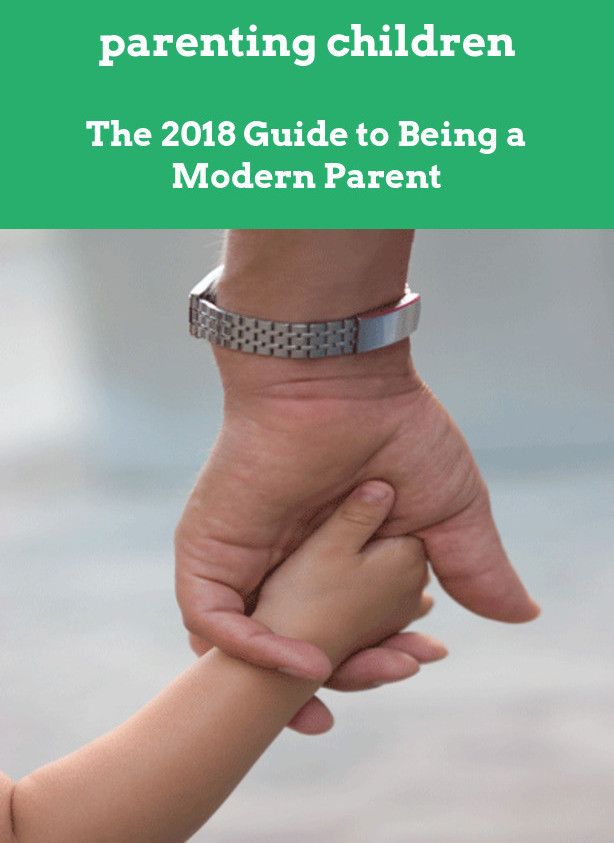 (Children should not be eating while looking at screens.) Parents worry about picky eaters, and of course about children who eat too much and gain weight too fast; you want to help your child eat a variety of real foods, rather than processed snacks, to eat at mealtimes and snacktimes, rather than constant "grazing," or "sipping," and to eat to satisfy hunger, rather than experiencing food as either a reward or a punishment.
(Children should not be eating while looking at screens.) Parents worry about picky eaters, and of course about children who eat too much and gain weight too fast; you want to help your child eat a variety of real foods, rather than processed snacks, to eat at mealtimes and snacktimes, rather than constant "grazing," or "sipping," and to eat to satisfy hunger, rather than experiencing food as either a reward or a punishment.
Don’t cook special meals for a picky child, but don’t make a regular battlefield out of mealtime.
Some tips to try:
- Talk with small children about "eating the rainbow," and getting lots of different colors onto their plates (orange squash, red peppers, yellow corn, green anything, and so on).
- Take them to the grocery store or the farmer's market and let them pick out something new they'd like to try.
- Let them help prepare food.
- Be open to deploying the foods they enjoy in new ways (peanut butter on almost anything, tomato sauce on spinach).
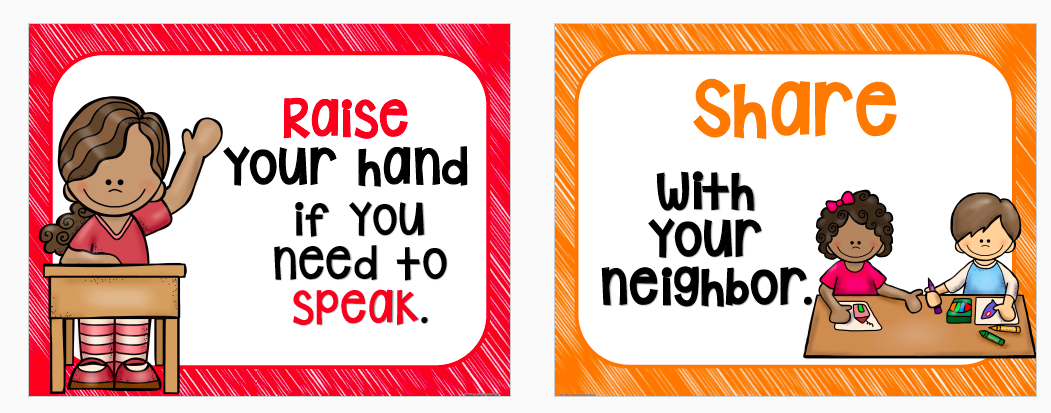
- Some children will eat almost anything if it's in a dumpling, or on top of pasta.
- Offer tastes of what everyone else is eating.
- Find some reliable fallback alternatives when your child won’t eat anything that’s offered. (Many restaurants will prepare something simple off the menu for a child, such as plain pasta or rice.)
Above all, encourage your child to keep tasting; don't rule anything out after just a couple of tries. And if you do have a child who loves one particular green vegetable, it's fine to have that one turn up over and over again.
Bottom line: As long as a child is growing, don’t agonize too much.
Family meals matter to older children as well, even as they experience the biological shifts of adolescent growth. Keep that social context for food as much as you can, even through the scheduling complexities of middle school and high school. Keep the family table a no-screen zone, and keep on talking and eating together. Some families found that the pandemic meant more opportunities for family meals, which helped them through the hard times, but if the stresses of the recent past have pushed your family toward more snacking and more fast food, know that you are not alone. It will always help to re-set as a family, to stock healthy foods in the house, and to eat together and connect over food.
Some families found that the pandemic meant more opportunities for family meals, which helped them through the hard times, but if the stresses of the recent past have pushed your family toward more snacking and more fast food, know that you are not alone. It will always help to re-set as a family, to stock healthy foods in the house, and to eat together and connect over food.
More on Your Child's Diet
How to Discipline
Small children are essentially uncivilized, and part of the job of parenting inevitably involves a certain amount of correctional work. With toddlers, you need to be patient and consistent, which is another way of saying you will need to express and enforce the same rules over and over and over again. “Time outs” work very effectively with some children, and parents should watch for those moments when they (the parents) may need them as well. Seriously, take a breather when you are feeling as out of control as your child is acting. Many parents have been under extraordinary stress during the pandemic; be sure you are taking care of yourself, and get help if you need it.
Many parents have been under extraordinary stress during the pandemic; be sure you are taking care of yourself, and get help if you need it.
Distraction is another good technique; you don’t have to win a moral victory every time a small child misbehaves if you can redirect the behavior and avoid the battle. The overall disciplinary message to young children is the message that you don’t like the behavior, but you do love the child.
Think praise rather than punishment. Physical discipline, like hitting and spanking, tends to produce aggressive behavior in children. Keep in mind that it’s always a parental win if you can structure a situation so that a child is earning privileges (screentime, for example) by good behavior, rather than losing them as a penalty. Search for positive behaviors to praise and reward, and young children will want to repeat the experience. But inevitably, parenthood involves a certain number of “bad cop” moments, when you have to say no or stop and your child will be angry at you — and that’s fine, it goes with the territory.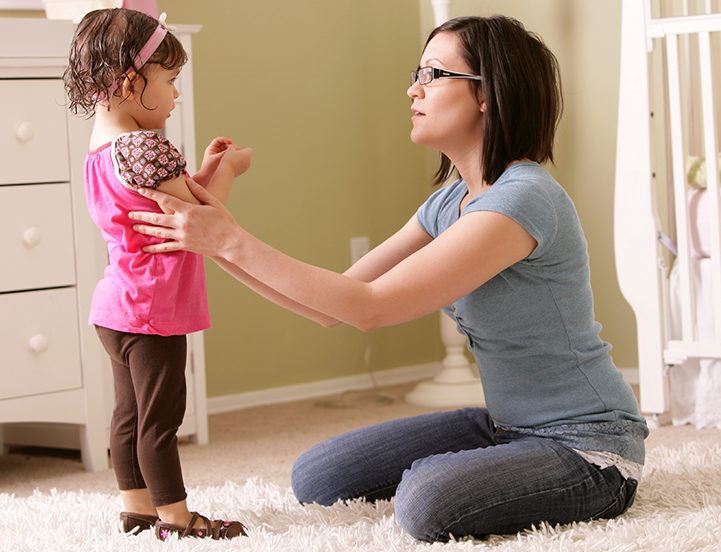 Look in the mirror and practice saying what parents have always said: “I’m your mother/father, I’m not your friend.”
Look in the mirror and practice saying what parents have always said: “I’m your mother/father, I’m not your friend.”
As parents, we should be trying to regulate our children’s behavior — or to help them regulate their own — and not trying to legislate their thoughts:
- It is OK to dislike your brother or your classmate, but not to hit him.
- It is OK to feel angry or frustrated, as long as you behave properly.
Our “civilizing” job as parents may be easier, in fact, if we acknowledge the strength of those difficult emotions, and celebrate the child who achieves control. And take advantage of the opportunity to demonstrate what you do when you have lost control or behaved badly: Offer a sincere parental apology.
It’s also worth recognizing that we have all been living through extraordinary times, and that a child who is, for example, angry or frustrated because activities have been canceled, or interrupted, should not feel bad about expressing those emotions.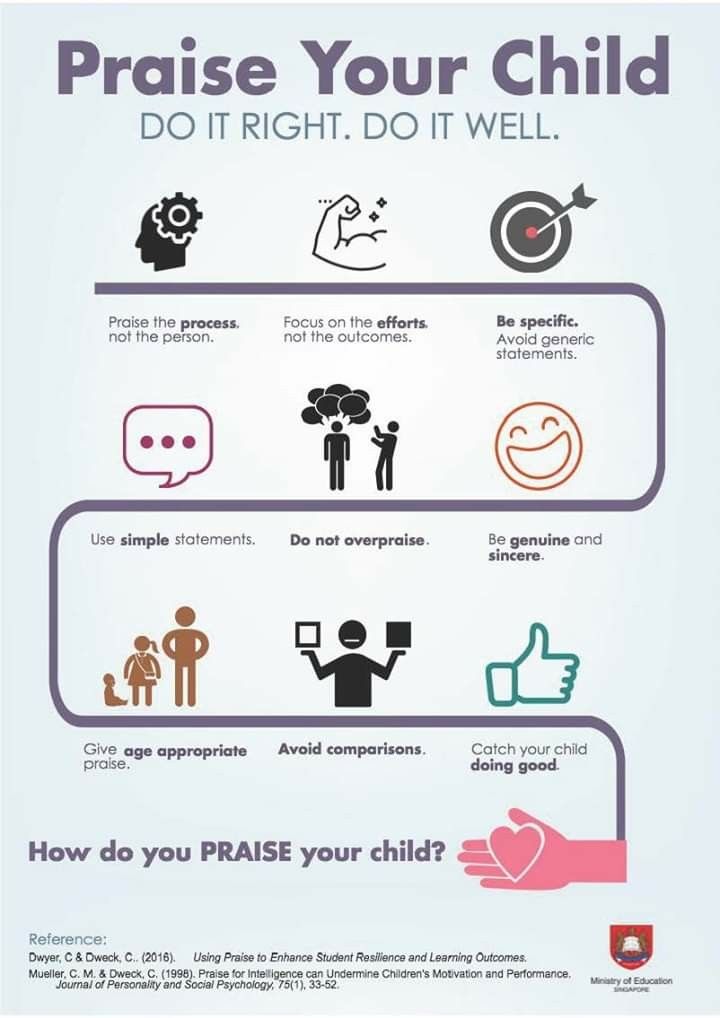 Even young children can understand that what’s “wrong” or “bad” is the pandemic – not the child’s feelings.
Even young children can understand that what’s “wrong” or “bad” is the pandemic – not the child’s feelings.
More on Discipline
Social Issues
Parenting in the Time of Covid
This is an anxious time to be a parent. You’re helping children navigate a pandemic world in which new information – sometimes scary, sometimes confusing – has to be absorbed and reacted to on a regular basis. You may be helping an anxious child handle fears about going out into the world, or trying to enforce safety protocols with a child who is just eager to declare the pandemic “over.” You may be dealing with economic pressures, with worries over vulnerable family members, or with grief for people who have been lost. And many of the everyday decisions of parenthood have become more heavily weighted and more frightening. It can’t be said too often: understand that you are living – and parenting – through very difficult times, and as far as possible, take care of yourself.
If you are anxious, if you are depressed, if you are angry, think about the coping strategies that help you, and look for additional help if you need it, from your partner, if you have one, from close friends and family, from your spiritual community, from your doctor, from a mental health professional.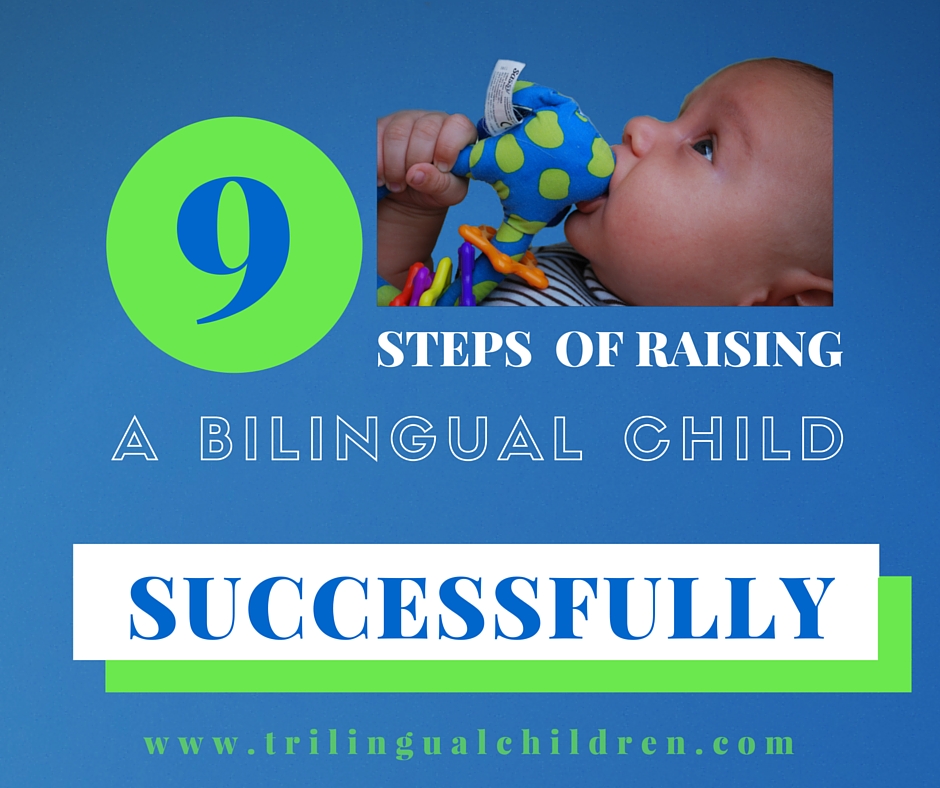 Understand that parents have faced a difficult – and at times impossible – set of “assignments,” and that they have in large part responded with everyday heroism in taking care of their children. But they need to care of themselves as well.
Understand that parents have faced a difficult – and at times impossible – set of “assignments,” and that they have in large part responded with everyday heroism in taking care of their children. But they need to care of themselves as well.
Bullying
You can take steps to help your children manage both bullying and conflict — and you're at your most useful when you know which of the two you’re trying to address. Children who are being bullied are on the receiving end of mistreatment, and are helpless to defend themselves, whereas children in conflict are having a hard time getting along. Fortunately, most of the friction that happens among children is in the realm of conflict —an inevitable, if unpleasant, consequence of being with others — not bullying.
If children are being bullied, it’s important to reassure them that they deserve support, and that they should alert an adult to what’s happening. Further, you can remind your children that they cannot passively stand by if another child is being bullied.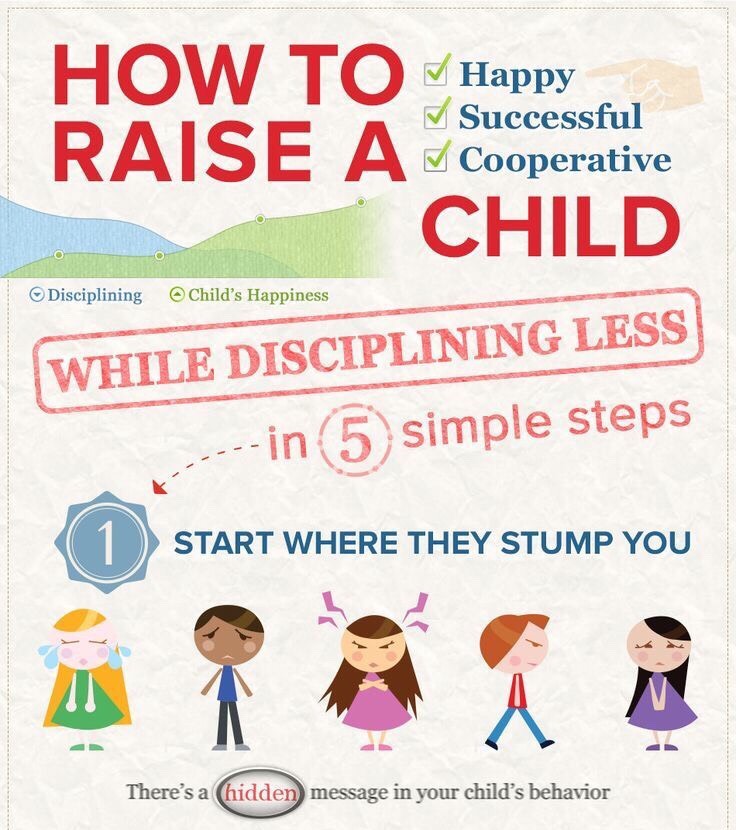 Regardless of how your own child might feel about the one being targeted, you can set the expectation that he or she will do at least one of three things: confront the bully, keep company with the victim, alert an adult.
Regardless of how your own child might feel about the one being targeted, you can set the expectation that he or she will do at least one of three things: confront the bully, keep company with the victim, alert an adult.
When the issue is conflict, you should aim to help young people handle it well by learning to stand up for themselves without stepping on anyone else. To do this, you can model assertion, not aggression, in the inevitable disagreements that arise in family life, and coach your children to do the same as they learn how to address garden-variety disputes with their peers.
More About Gender
Morality
All parents have in common the wish to raise children who are good people. You surely care about how your child will treat others, and how he or she will act in the world. In some households, regular participation in a religious institution sets aside time for the family to reflect on its values and lets parents convey to their children that those beliefs are held by members of a broad community that extends beyond their home.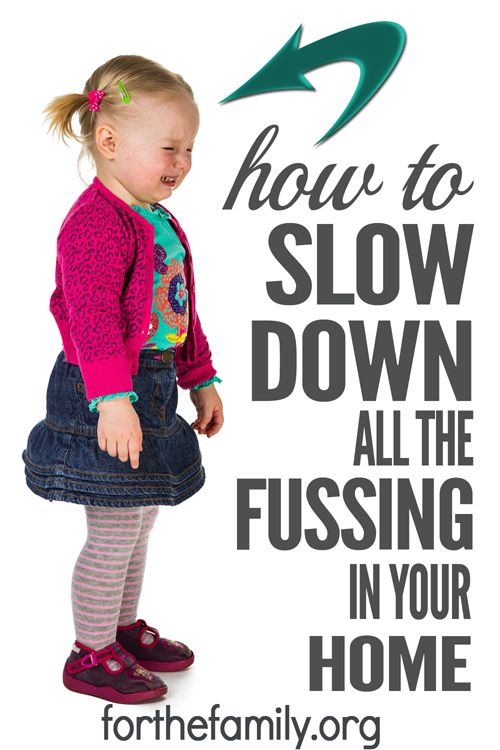
Even in the absence of strong spiritual beliefs, the celebration of religious holidays can act as a key thread in the fabric of family life. Though it is universally true that children benefit when their parents provide both structure and warmth, even the most diligent parents can struggle to achieve both of these on a regular basis. The rituals and traditions that are part of many religious traditions can bring families together in reliable and memorable ways. Of course, there are everyday opportunities to instill your values in your child outside of organized religion, including helping an elderly neighbor or taking your children with you to volunteer for causes that are important to you.
Above all, however, children learn your values by watching how you live.
More on Morality and Children
Academic Pressure
When it comes to school, parents walk a difficult line: You want your children to strive and succeed, but you don’t want to push them in ways that are unfair, or cause needless stress.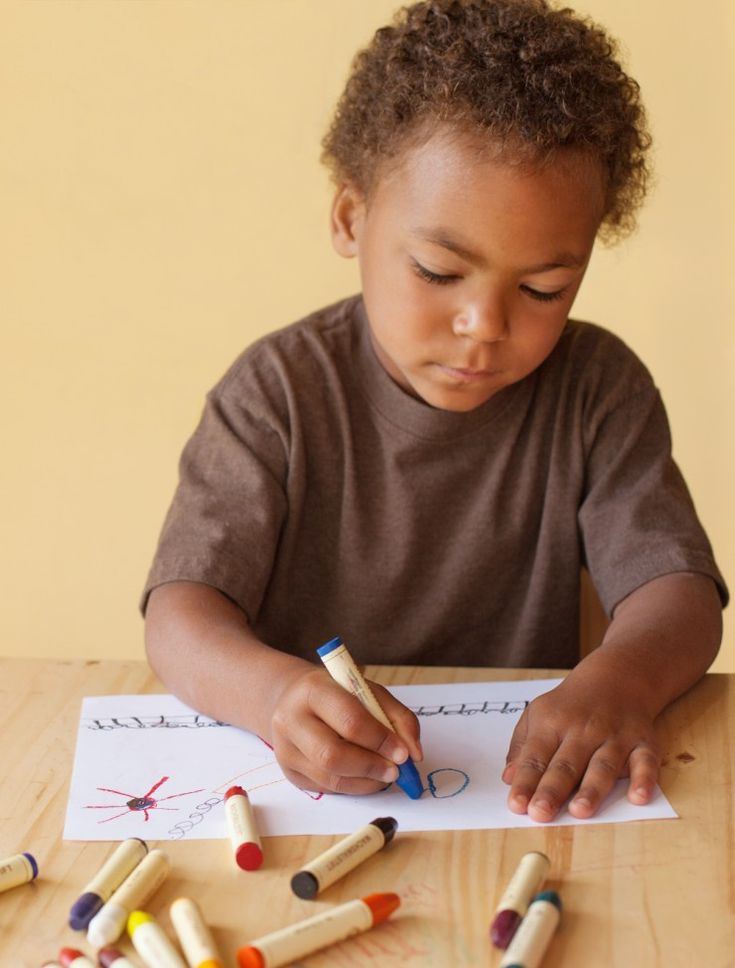 At every age and skill level, children benefit when parents help them focus on improving their abilities, rather than on proving them. In other words, children should understand that their intellectual endowment only gets them started, and that their capabilities can be increased with effort.
At every age and skill level, children benefit when parents help them focus on improving their abilities, rather than on proving them. In other words, children should understand that their intellectual endowment only gets them started, and that their capabilities can be increased with effort.
Many children struggled during the course of the pandemic, faced with learning in ways that were harder for them than regular school – this may be especially true for children with learning differences and special needs, but it applies across the board. As they return to in-person schooling, children need time to catch up, and they need to feel comfortable asking for that time, or for extra help – so they need to hear the message that what matters is the learning and understanding that they gain, not some rigid schedule that they may have fallen behind.
Children who adopt this growth mindset – the psychological terminology for the belief that industry is the path to mastery – are less stressed than peers who believe their capacities are fixed, and outperform them academically. Students with a growth mindset welcome feedback, are motivated by difficult work, and are inspired by the achievements of their talented classmates.
Students with a growth mindset welcome feedback, are motivated by difficult work, and are inspired by the achievements of their talented classmates.
To raise growth-mindset thinkers you can make a point of celebrating effort, not smarts, as children navigate school. (This may be more important than ever as schools reopen and children return following their different experiences with remote or hybrid education.) When they succeed, say, “Your hard work and persistence really paid off. Well done!” And when they struggle, say, “That test grade reflects what you knew about the material being tested on the day you took the test. It does not tell us how far you can go in that subject. Stick with it and keep asking questions. It will come.”
Parents should step in when students face academic challenges that cause constant or undue stress. Some students hold themselves, or are held by adults, to unrealistic standards. Others missed a step along the way, had a hard time during the pandemic, study ineffectively or are grappling with an undiagnosed learning difference. Parents should be in touch with teachers about how things are going. Determining the nature of the problem will point the way to the most helpful solution.
Parents should be in touch with teachers about how things are going. Determining the nature of the problem will point the way to the most helpful solution.
More on Children and School Pressure
Technology
Here’s how to raise a child with a healthy attitude toward shiny screens and flashing buttons.
Screen Time
You could try to raise a screen-free child, but let’s be honest, you’re reading this on a screen. As in everything else, the challenge is in balancing the ideal and the real in a way that’s right for your family. The pandemic upended many families’ rules and practices, as everything from visits with grandma from teenage social networks to math class started to happen on screens. And some aspects of those experiences may help you think about positive screen-related experiences you want to build into your children’s lives going forward: regular dates for watching a movie as a family, reading a book on an iPad, FaceTiming with out-of-town relatives. Technology plays such an important role in children’s lives now that when we talk about it, we’re talking about everything from sleep to study to social life.
Technology plays such an important role in children’s lives now that when we talk about it, we’re talking about everything from sleep to study to social life.
“Technology is just a tool and it can be an extremely enriching part of kids’ lives,” said Scott Steinberg, co-author of “The Modern Parent’s Guide to Facebook and Social Networks.” “A lot of what we’re teaching about parenting around technology is just basic parenting,” he said. “It comes down to the Golden Rule: Are they treating others in a respectful and empathetic manner?”
Phones and social media give older kids opportunities to reckon with responsibilities they haven’t had before, such as being sent, or asked to share, an inappropriate image, said Ana Homayoun, author of the book “Social Media Wellness: Helping Teens and Tweens Thrive in an Unbalanced Digital World.” Parents need to keep talking about this side of life with their children so they don’t leave their kids to navigate it alone.
And then there’s the question of protecting family time. Mr. Steinberg advises setting household rules that govern when devices may be used, and have clear, age-appropriate policies so kids know what they can and can’t do.
Mr. Steinberg advises setting household rules that govern when devices may be used, and have clear, age-appropriate policies so kids know what they can and can’t do.
Some of these policies will be appropriate for all ages, including parents, such as:
- No phones at the dinner table.
- No screens for an hour before bedtime.
It’s important to practice what you preach. And if your family needs to re-set some of these rules as children return to the classroom, you can talk it through with your children, explaining why it matters to use devices well, but set some limits. And in addition to taking time for family meals and family conversations, parents should be taking the time to sit down with young children and look at what they’re doing online, rather than leaving them alone with their devices as babysitters.
Parents as Digital Role Models
When a parent wants to post on social media about something a child did that may embarrass the child, Ms. Homayoun said, it’s worth stepping back to consider why. Are you posting it to draw attention to yourself?
Homayoun said, it’s worth stepping back to consider why. Are you posting it to draw attention to yourself?
You should respect your child’s privacy as much as you respect the privacy of friends, family members and colleagues. As cute as it may seem to post pictures of a naked toddler, consider a "no butts" policy. That may not be the image that your child wants to portray 15 years from now.
“We need to, from a very early age, teach kids what consent looks like,” Ms. Homayoun said. “It doesn’t begin when a kid is 15, 16 or 17. It begins when a kid is 3 and he doesn’t want to go hug his uncle.” Or when he doesn’t want you to post that video of him crying over a lost toy.
Our children will create digital footprints as they grow, and it will be one of our jobs to help them, guide them and get them to think about how something might look a few years down the line — you can start by respecting their privacy and applying the same standards throughout their lives.
Tech Toys
It’s easy to dismiss high-tech toys as just pricey bells and whistles, but if you choose more enriching options, you can find toys that help kids grow. For young children, though, there’s a great deal to be said for allowing them, as much as possible, to explore the nondigital versions of blocks, puzzles, fingerpaints and all the rest of the toys that offer tactile and fine motor experiences. As children get older, some high-tech games encourage thinking dynamically, problem solving and creative expression.
For young children, though, there’s a great deal to be said for allowing them, as much as possible, to explore the nondigital versions of blocks, puzzles, fingerpaints and all the rest of the toys that offer tactile and fine motor experiences. As children get older, some high-tech games encourage thinking dynamically, problem solving and creative expression.
“These high-tech games can be an opportunity to bond with your kids. Learn more about how they think and their interests,” Mr. Steinberg said. Some games encourage kids to be part of a team, or lead one. And others let them be wilder than they might be in real life – in ways that parents can appreciate: “You can’t always throw globs of paint around the house but you can in the digital world,” he said.
The Right Age for a Phone?
“Many experts would say it’s about 13, but the more practical answer is when they need one: when they’re outside your direct supervision,” Mr. Steinberg said. Ms. Homayoun recommends them for specific contexts, such as for a child who may be traveling between two houses and navigating late sports practices.
Consider giving tiered access to technology, such as starting with a flip phone, and remind children that privileges and responsibilities go hand in hand. A child’s expanding access to personal technology should depend on its appropriate use.
To put these ideas into practical form, the website of the American Academy of Pediatrics offers guidelines for creating a personalized family media use plan.
More on Technology and Kids
Time Management
Balance both your schedule and your child’s with a reasonable approach to time.
Overscheduling
As the world opens up, children whose lives had been more circumscribed will have the chance not only to return to school, but also to get back to sports, lessons and extracurricular activities. At the same time, pandemic protocols can make all of this even more complicated, for kids and for parents. We all know the cliché of the overscheduled child, rushing from athletic activity to music lessons to tutoring, and there will probably be moments when you will feel like that parent, with a carload of equipment and a schedule so complicated that you wake up in the middle of the night worrying you’re going to lose track. But it’s also a joy and a pleasure to watch children discover the activities they really enjoy, and it’s one of the privileges of parenthood to cheer your children on as their skills improve.
But it’s also a joy and a pleasure to watch children discover the activities they really enjoy, and it’s one of the privileges of parenthood to cheer your children on as their skills improve.
Some children really do thrive on what would be, for others, extreme overscheduling. But the complexities of managing social contacts in a time of Covid protocols make it even more important to set priorities so that a child gets to do whichever activities really matter to that particular kid. Know your child, talk to your child, and when necessary, help your child negotiate the decisions that make it possible to keep doing the things that mean the most, even if that means letting go of some other activities.
Remember, children can get a tremendous amount of pleasure, and also great value, from learning music, from playing sports, and also from participating in the array of extracurricular activities that many schools offer. However, they also need a certain amount of unscheduled time. The exact mix varies from child to child, and even from year to year. On the one hand, we need to help our children understand the importance of keeping the commitments they make — you don’t get to give up playing your instrument because you’re struggling to learn a hard piece; you don’t quit the team because you’re not one of the starters — and on the other, we need to help them decide when it’s time to change direction or just plain let something go.
The exact mix varies from child to child, and even from year to year. On the one hand, we need to help our children understand the importance of keeping the commitments they make — you don’t get to give up playing your instrument because you’re struggling to learn a hard piece; you don’t quit the team because you’re not one of the starters — and on the other, we need to help them decide when it’s time to change direction or just plain let something go.
So how do you know how much is too much? Rethink the schedule if:
- Your child isn’t getting enough sleep.
- Your child doesn’t have enough time to get schoolwork done.
- Your child can’t squeeze in silly time with friends, or even a little downtime to kick around with family.
And make sure that high school students get a positive message about choosing the activities that they love, rather than an anxiety-producing message about choosing some perfect mix to impress college admissions officers. The point of scheduling is to help us fit in the things we need to do and also the things we love to do; overscheduling means that we’re not in shape to do either.
The point of scheduling is to help us fit in the things we need to do and also the things we love to do; overscheduling means that we’re not in shape to do either.
Taking Care of Yourself
Being a parent is the job of your life, the job of your heart, and the job that transforms you forever. But as we do it, we need to keep hold of the passions and pastimes that make us who we are, and which helped bring us to the place in our lives where we were ready to have children. We owe our children attention — and nowadays it’s probably worth reminding ourselves that paying real attention to our children means limiting our own screentime and making sure that we’re talking and reading aloud and playing. But we owe ourselves attention as well, and this has been an extraordinarily stressful and anxious time for many parents.
Your children will absolutely remember the time that you spent with them, and that has special meaning for many families after the ways the lockdowns and isolation months of the recent past — but you also want them to grow up noticing the way you maintain friendships of your own, the way you put time and energy into the things that matter most to you, from your work to your physical well-being to the special interests and passions that make you the person they know. They will see how you hold on to what matters most, and how you make sure to do it safely – the same imperatives you’re trying to get them to incorporate in their own lives. Whether you’re taking time to paint or dance, or to knit with friends, or to try to save the world, you are acting and living your values and your loves, and those are messages that you owe to your children.
They will see how you hold on to what matters most, and how you make sure to do it safely – the same imperatives you’re trying to get them to incorporate in their own lives. Whether you’re taking time to paint or dance, or to knit with friends, or to try to save the world, you are acting and living your values and your loves, and those are messages that you owe to your children.
You may not be able to pursue any of your passions in quite the same way and to quite the same extent that you might have before you had a child — and before every social interaction carried a Covid question. You may have to negotiate the time, hour by hour, acknowledging what is most important, and trading it, perhaps, for what is most important to your partner, if you have one. You’ll be, by definition, a different painter, as you would be a different runner, a different dancer, a different friend and a different world-saver. But you may well come to realize that the experience of taking care of a small child helps you concentrate in a stronger, almost fiercer way, when you get that precious hour to yourself.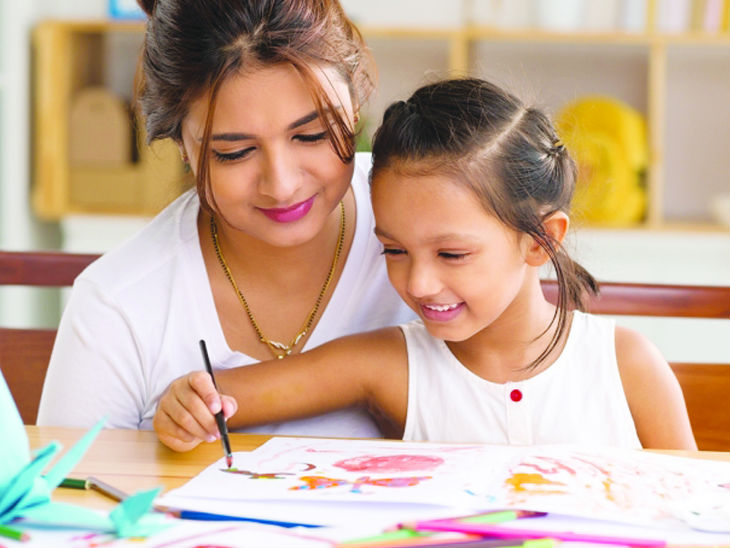
How to Find Balance
As children return to in-person learning, the distinction between schoolwork and homework will become an issue for some. Lots of parents worry that their children get an unreasonable amount of homework, and that homework can start unreasonably young. While it may be easy to advise that homework can help a child learn time management and study habits, and to let children try themselves and sometimes fail, the reality is that many of us find ourselves supervising at least a little, and parents who have been supervising remote learning may find it harder to pull back and let the child work. This is another reason to be in touch with your child’s teacher, and aware of how things are going in school. You should speak up if it seems that one particular teacher isn’t following the school’s guidelines for appropriate amounts of homework. And for many children, it’s helpful to talk through the stages of big projects and important assignments, so they can get some intermediate dates on the calendar. If the homework struggle dominates your home life, it may be a sign of another issue, like a learning disability.
If the homework struggle dominates your home life, it may be a sign of another issue, like a learning disability.
For many families nowadays, the single biggest negotiation about time management is around screen time, and of course, screen time has now become part of schoolwork for many children. Screen time can be homework time (but is the chatting that goes on in a corner really part of the assignment?) or social time or pure entertainment time. Bottom line: As long as a child is doing decently in school, you probably shouldn’t worry too much about whether, by your standards, the homework looks like it is being done with too many distractions.
And remember, some family responsibilities can help anchor a child to the nonvirtual world: a dog to be walked or trash to be taken out. And when it comes to fun, let your child see that you value the non-homework part of the evening, or the weekend, that you understand that time with friends is important, and that you want to be kept up to date on what’s going on, and to talk about your own life. Ultimately, we have to practice what we preach, from putting down our own work to enjoy unstructured family time to putting down our phones at the dinner table to engage in a family discussion. Our children are listening to what we say, and watching what we do.
Ultimately, we have to practice what we preach, from putting down our own work to enjoy unstructured family time to putting down our phones at the dinner table to engage in a family discussion. Our children are listening to what we say, and watching what we do.
How to raise a child without shouting and punishing
The whole truth about how to choose a backpack for a first grader.
- Articles
- How to raise a child without screaming and punishment
Raising a child is a long, laborious and not always smooth process, during which we form his personality and give him basic settings for life. That is why it is so important to use only the right methods in the course of educational actions and to abandon harmful ones, such as screaming, tantrums and physical punishment.
What is the danger of shouting and punishment for raising a child?
The use of verbal and even more so physical punishment entails many negative consequences for the upbringing of children:
-
Children become embittered.
 Cruelty begets cruelty, so over time, from upbringing in a raised voice, even the most good-natured and timid child can begin to be rude in response and become aggressive not only towards mom and dad, but also to the rest of those around them.
Cruelty begets cruelty, so over time, from upbringing in a raised voice, even the most good-natured and timid child can begin to be rude in response and become aggressive not only towards mom and dad, but also to the rest of those around them. -
Over time, it becomes impossible to raise a child without screaming and using punishments. Children get used to the fact that what is said in a normal tone is not obligatory to be carried out and begin to act on instructions only when the parents begin to raise their tone. As a result, the child gets a completely distorted picture of the world and the correct methods of education.
-
In childhood, the psychological core of a person is formed and the foundations of communication with other people are laid. If in childhood your child suffers from constant screams and tantrums, in the future this may lead to the fact that the child will not be able to stand up for himself, will be unsure of himself.

Sometimes disobedience and tantrums occur for reasons that absolutely cannot be punished or shouted for, for example, physiological (pain, thirst, fatigue) or psychological (stress, fear). To make it easier for you to navigate the topic and educate your child, we recommend reading our material on children's tantrums.
What should mothers and fathers do to bring up an inquisitive, active and grateful child without shouting and punishment?
For your parenting strategy to work, it is essential that all family members who come into contact with the child, in particular grandparents, adhere to a single line of behavior and use the same methods to achieve results. For example, if a mother sets a rule for one candy a day, then under no pretext should the rest of the family break this rule, because it is with such inconsistencies that disobedience in children begins.
Train your patience. Remember that in any dispute and difficult situation, you remain an adult and the outcome of what is happening and the upbringing process as a whole depends on you. Yes, children are prone to tantrums, manipulation and other tricks that can piss them off. But it is important for moms and dads to understand just one thing - your child is only forming his worldview and your task is to educate him and patiently show him the right path, and also be able to accept his opinion, which may not coincide with yours.
Yes, children are prone to tantrums, manipulation and other tricks that can piss them off. But it is important for moms and dads to understand just one thing - your child is only forming his worldview and your task is to educate him and patiently show him the right path, and also be able to accept his opinion, which may not coincide with yours.
To raise an obedient baby, from a very early age, show that it is the parents who are the main ones in the family. If you bring up children correctly, then sometimes one glance or half a word is enough for authoritative parents to achieve results. And this is not at all about the fact that the child will unquestioningly fulfill requests because of fear. No, just understanding from the very beginning a clear hierarchy in the family, he will accept these rules of the game.
Have a clear list of prohibitions and always justify them. Prohibitions must be supported by the fact that certain actions can harm the child or others. At the same time, everything else must be allowed, because he needs to know the world. For example, a ban on going out of the yard for a baby under 6 years old is quite justified, just explain to the child that this carries with it a number of dangers to his life. At the same time, arguments like “Because I said so” should not sound from your lips.
For example, a ban on going out of the yard for a baby under 6 years old is quite justified, just explain to the child that this carries with it a number of dangers to his life. At the same time, arguments like “Because I said so” should not sound from your lips.
When educating, introduce the child to the household and solving family issues. A kid from a very early age should understand his importance, but only in the context of the fact that he is an integral part of the family and his opinion is taken into account. Of course, a child cannot participate in solving global and serious issues, but it is quite possible to entrust him with the choice of bread in the store or to involve him in discussing the color of the walls in his room. This will help instill in the child a sense of responsibility and belonging. Also, the child should have their own responsibilities depending on age. For example, from the first grade, he should be able to fold his school backpack. Of course, at first with the help of the mother, but the child should understand as early as possible that this is his responsibility. Also educating, you need to entrust children with simple tasks around the house, for example, wipe the dust, fold toys or make the bed. At the same time, domestic work should be a normal part of everyday life, but not a punishment for some wrongdoing.
Also educating, you need to entrust children with simple tasks around the house, for example, wipe the dust, fold toys or make the bed. At the same time, domestic work should be a normal part of everyday life, but not a punishment for some wrongdoing.
Talk and spend time together. Play, draw, cook, go for walks, travel, read, etc. Only under the condition of regular and high-quality communication with children, it is possible to bring them up obedient and inquisitive without unnecessary screams, tantrums and breakdowns.
Accept the child as he is. The purpose of education is to reveal all the natural talents and capabilities of the baby, to show the basics of behavior in society, while maintaining his individuality. For example, if your child cannot sit in one place, you should not try to “seat” him at all costs, even when his activity does not interfere with anyone. It is better to find useful ways to release energy and then at the right time the child will behave more docilely and obediently.
In addition, in order to raise your child obedient, it is important to know about age crises, follow the link and read more about it.
How can parents develop their self-control and learn how to raise children without screaming?
If you understand that sometimes you can break into a scream or tantrum when talking and teaching a child, we recommend that you listen to the recommendations of psychologists:
-
Remember that initially mom and dad are the personification of all the best in the small world of a child. But with each release of negativity or aggression, even justified, towards the child, this image will collapse and in the future it will become more and more difficult for you to solve problems with children without screaming.
-
At the moment when you want to yell or punish a child, put yourself in his place. At this moment, he is already experiencing stress, is it worth it to increase it in order to release his emotions?
-
If you feel like you can't help it and emotions overwhelm you, move away from the child and count to 10, accompanying the count with deep breaths.
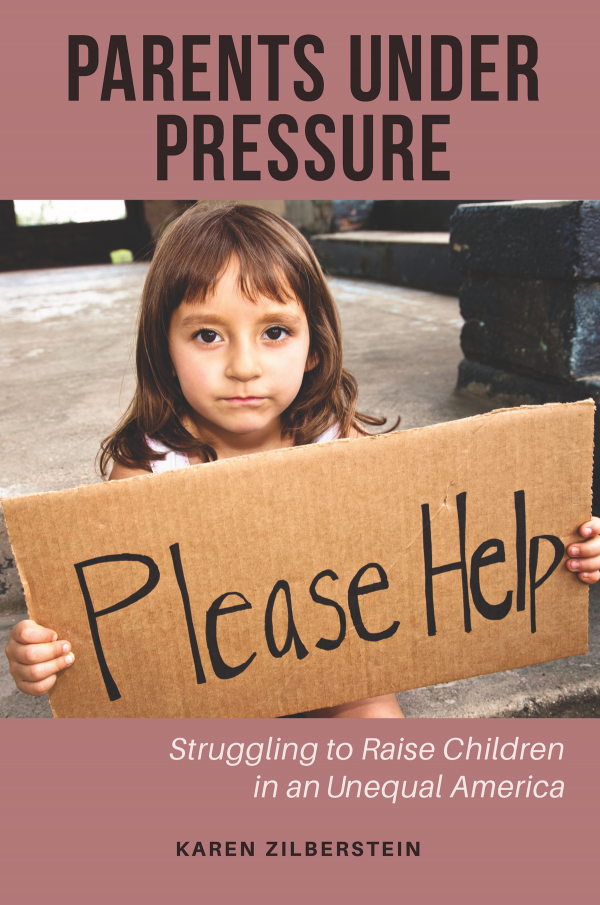 As a rule, this time is enough to take a breath and continue the educational conversation in an acceptable tone.
As a rule, this time is enough to take a breath and continue the educational conversation in an acceptable tone.
-
Realize that any difficulties in raising children are temporary. The child is getting older every day. If yesterday he could still unconsciously draw a wall, then tomorrow he will no longer do it. Is it worth it in this case to waste your life resource and spoil the nervous system of the child?
-
Understand that any shortcomings in raising children are not theirs, but your problem. Accordingly, you need to reconsider your approaches, reactions and methods in order to get the desired result from the child.
-
During a stressful situation, simulate a future in which your adult and independent child screams and insults you. This technique sharply discourages the desire to raise your voice and solve problems by shouting.
What kinds of "punishments" can be used to raise children?
-
Own experience.
 You can educate by allowing the child to do what he wants. Thus, you allow him to punish himself. Of course, this method is not applicable in all situations. But even a few such moments will help him independently come to the conclusion that it would be better if he listened to his parents. For example, your child wants to watch TV until late and you have to get up early the next day, or wants to wear a warm jacket in hot weather. Sometimes it’s not worth arguing and letting the child understand for himself that he didn’t go to bed on time in vain and now he feels tired or he dressed so warmly in vain and now he is hot and needs to carry a heavy jacket in his hands.
You can educate by allowing the child to do what he wants. Thus, you allow him to punish himself. Of course, this method is not applicable in all situations. But even a few such moments will help him independently come to the conclusion that it would be better if he listened to his parents. For example, your child wants to watch TV until late and you have to get up early the next day, or wants to wear a warm jacket in hot weather. Sometimes it’s not worth arguing and letting the child understand for himself that he didn’t go to bed on time in vain and now he feels tired or he dressed so warmly in vain and now he is hot and needs to carry a heavy jacket in his hands. -
Timeout. If a child throws a tantrum or misbehaves, such as bullying his brothers and sisters, you need to temporarily remove the mischief from the family circle and give time to think about your behavior in private. It is best to ask the child to go to his room and return when he calms down.
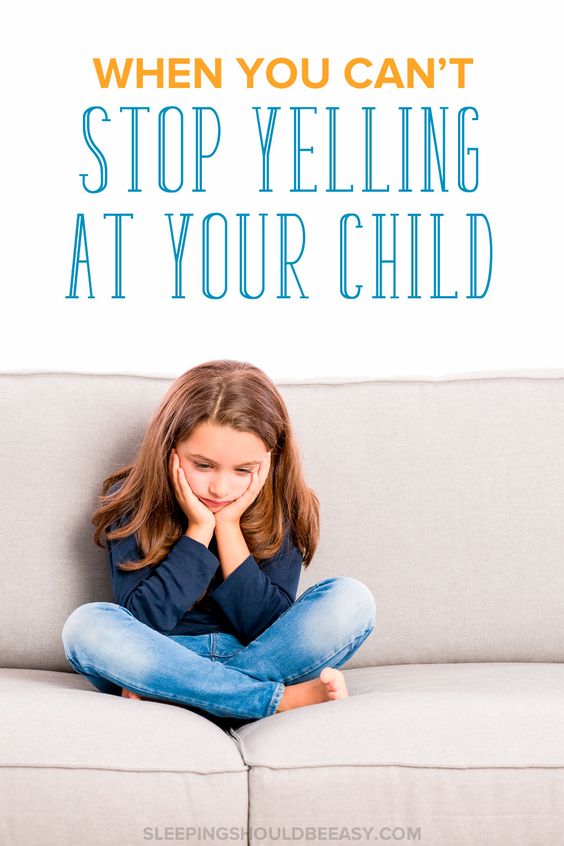 In this type of punishment, it is important for you to show that you are extremely dissatisfied with the actions of the child and you do not want to continue the conversation with him now. At the same time, remember that in order to get the right effect from such an upbringing technique, it cannot be locked in a room, sent to dark and unpleasant places (corner, closet, toilet) and accompany your actions with offensive words. Children should understand that they are still loved, but now they have upset their parents and do not want to talk to them at this moment in time.
In this type of punishment, it is important for you to show that you are extremely dissatisfied with the actions of the child and you do not want to continue the conversation with him now. At the same time, remember that in order to get the right effect from such an upbringing technique, it cannot be locked in a room, sent to dark and unpleasant places (corner, closet, toilet) and accompany your actions with offensive words. Children should understand that they are still loved, but now they have upset their parents and do not want to talk to them at this moment in time. -
Deprivation. Experienced psychologists admit the use of deprivation for the upbringing of children. The main thing is to implement them correctly. You should not deprive a child of something they love simply in response to a bad behavior or act. It is important to agree in advance with the child. For example, if a kid misbehaves in a public place or is negligent in his studies, then for the first time he needs to make a remark, talk to him about the reasons for this behavior and warn him, if this continues, then you will have to take away his gadget or reduce the time of playing at computer.
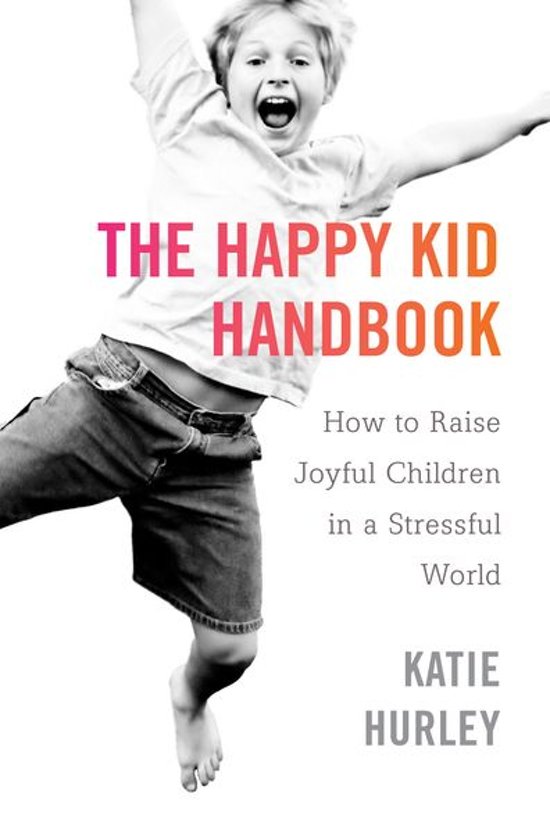 When educating, it is important to make it clear to the child that everything depends on him and you conclude an honest contract.
When educating, it is important to make it clear to the child that everything depends on him and you conclude an honest contract.
It is quite possible to raise children without screaming. The main thing to remember is one simple truth that our children are in many ways a reflection of ourselves. And even if in the moment you managed to cope with the conflict or disobedience by yelling at the child, you must remember that these methods never work in the future. And having raised an obedient and smiling baby without screaming, you will be proud of yourself and see even more love in the eyes of your child.
Return to list
How to raise a happy child
So much has already been written on the subject of how to raise a happy child and even more can be added on this topic. We offer you 9 tips for raising a happy child. You may already be familiar with all of them. Rather, you intuitively raise your baby in this way.
Rather, you intuitively raise your baby in this way.
However, the human brain is only able to keep in mind, on average, only 7 pieces of information at a time. And this means that in the daily hustle and bustle, we risk missing something important, at least 1 out of 9points. Just in case, let's go through the list and check if we put all of the listed tips on raising children into practice?
1. Start with yourself
It's no secret that children copy the behavior of adults, so it's up to you to become an example of an interesting, constantly developing personality for your child. Let your children become your motivator and another reason for self-improvement. Learn new things with your child, share your knowledge, look for answers to his questions and discuss new information. This will allow you to maintain an authoritative position even as your children enter a difficult puberty.
Teenagers are extremely attracted to people who are strong and able to lead. And if you do not become such a leader for him, there is a possibility that he will not be the most reliable or even dangerous person. Build your authority not by suppression and edification, but through communication. The basis for your position should be mutual trust, respect, sincerity and love. The child must believe you, feel that there is power behind your words and want to follow them.
And if you do not become such a leader for him, there is a possibility that he will not be the most reliable or even dangerous person. Build your authority not by suppression and edification, but through communication. The basis for your position should be mutual trust, respect, sincerity and love. The child must believe you, feel that there is power behind your words and want to follow them.
2. Expand your horizons
Make sure your children get their information not from tablets and smartphones, but from the real world. Undoubtedly, gadgets are interesting for a child and make life easier for parents. But do you want your children to get hooked on such stimulants from an early age, limiting their horizons to the virtual world? The fact is that the habit of information available "in two clicks" forms a selfish consumption system, and the child subsequently reacts much more sharply to refusals or the inability to quickly get what he wants. That in adolescence entails endless conflicts with parents.
Make your child more interesting than a tablet!
Watch the animals together at the zoo, have a picnic in nature, feed the fish and ducks in the pond, cook a cake together or show how comfortable you can sit in a chair with a real paper book. Develop your horizons through games, walks, live communication: show your child how great it is to live in the real world!
3. Do not forget about emotions
Form a connection with your child's own feelings and emotions. From an early age, children should be taught to express their wants and needs. When communicating with your baby, say out loud what you feel. For example: "I'm happy", "I'm hungry", "I'm having fun", "I'm offended". Also encourage your child to talk about their feelings. So, for example, if he fell, before comforting and pitying, let him first express how he feels. In this way, the child learns to communicate and learns the important semantic chain "I feel - I say - it's safe."
Learn to feel with your child: encourage conversation, read books to him, discuss the plot of the cartoon together, share your feelings and stimulate him in every possible way to talk about his inner state.
Remember that all our grievances and problems in adult life arise from childhood, namely from the inability to explain what we feel and what we want. If a child does not know how or is embarrassed to express his feelings, the sensory sphere is suppressed, and as a result, at an older age, a misunderstanding of his desires, interests and the meaning of life in general. This is how the position of the victim begins to take shape: “no one understands me”, “everyone is against me”, “I can’t do anything”. Agree, such a position is not uncommon among adults.
The ability to express one's feelings makes a child confident and teaches them to trust themselves. In adulthood, he will be able to clearly express his opinion, build long-term and lasting relationships with people.
4. Do not pay off communication with new toys
Many modern parents, due to their busyness and inability to spend time with their child, try to compensate for the lack of communication with various purchases.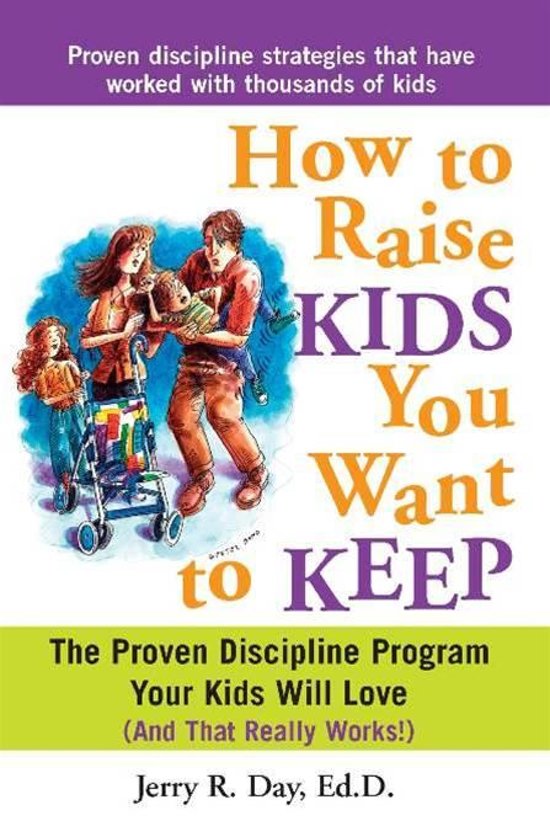 But your attention and time spent with you is much more important to children than the next toy or a pair of new jeans. Material things are provocateurs of whims and tantrums, which are actually a cry for the need to receive parental love. It is not necessary to spend all your time on games and communication, the main thing is regularity. Let it be an hour a day, but you will spend it 100%. There is a useful rule - devote a quarter of your joint time to studying something new in different areas: sports, literature, music, needlework, science, knowledge about yourself and your emotions.
But your attention and time spent with you is much more important to children than the next toy or a pair of new jeans. Material things are provocateurs of whims and tantrums, which are actually a cry for the need to receive parental love. It is not necessary to spend all your time on games and communication, the main thing is regularity. Let it be an hour a day, but you will spend it 100%. There is a useful rule - devote a quarter of your joint time to studying something new in different areas: sports, literature, music, needlework, science, knowledge about yourself and your emotions.
5. Hear the child
The difference between listening and hearing is very important here. It is impossible to hear the child, doing ironing or cleaning, standing with his back to him. When talking, eye contact is very important, and at the same eye level. So the child will feel safe.
To express how you feel about what the child said, use the I-message model: “I am upset that you are sick” instead of “you are my poor sick child” or “I was upset by what you did” instead of “you did a bad thing ". So you evaluate the actions of the child, and not him.
So you evaluate the actions of the child, and not him.
Set aside at least one hour a week for these kinds of conversations, when your child will know that your attention will be only on him, and he will be able to talk and get advice. This tradition must be continued into adolescence.
6. Let your child enjoy childhood
Do not overload your child with all kinds of circles and sections, otherwise you will grow a programmed robot. A preschooler should have 70% free time. Give the child the opportunity to try, look for what he likes, play and fantasize. Just be attentive to your child, keep his interest and at the right time help him make a choice.
7. Your words should matter
Childish disobedience and whims are familiar to all parents. And everyone deals with them differently. We will not consider physical punishments, it is hardly necessary to explain why. If you decide to resort to threats like “you will continue to act up, you will be left without ice cream,” then be sure to follow them.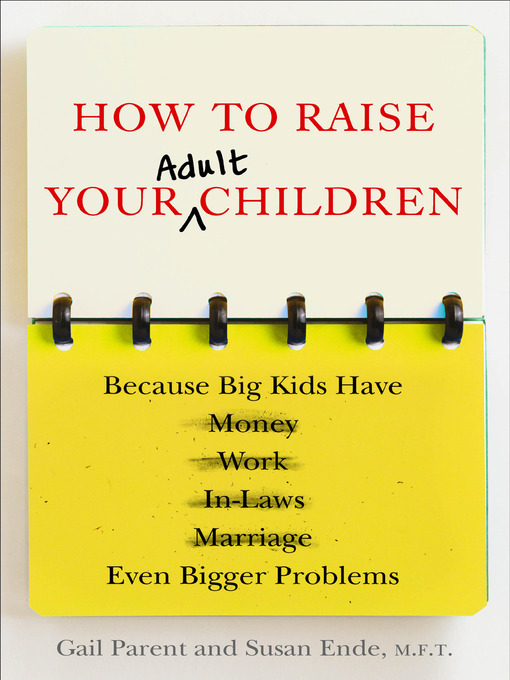 If you already establish some kind of ban - go to the end, be principled and true to what has been said. Otherwise, the child will not attach importance to your words. In any case, think twice before threatening.
If you already establish some kind of ban - go to the end, be principled and true to what has been said. Otherwise, the child will not attach importance to your words. In any case, think twice before threatening.
8. Mistakes are great
Do you know how Finnish children differ from ours? They are not afraid to make mistakes! And it's not for nothing that Finnish schoolchildren are in the lead in the ranking of happy children.
But while our children are in schools, where in most cases they are scolded for mistakes, the responsibility for their happy state lies with you. Explain to your child that mistakes are nothing to be ashamed of. Mistakes are even useful. When a child makes a mistake and does not feel the fear of being ridiculed or humiliated, he begins to be creative in finding new options and ways to solve or correct the problem. This will allow our children not to be afraid of possible difficulties in the future, but to always go ahead and look for new solutions.